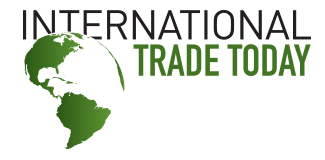CIT Rejects Bid to Halt Collection of Section 301 Duties on Importer's Needles, Syringes
The Court of International Trade rejected importer Retractable Technologies' bids for a temporary restraining order and preliminary injunction stopping the collection of Section 301 duties on its needles and syringes. However, in a decision made public Nov. 4, Judge Claire Kelly did stop liquidation of Retractable's entries during the course of the company's suit, which challenges the legality of a Section 301 rate hike on needles and syringes.
Kelly found that Retractable failed to show that it would suffer irreparable harm without the TRO and PI. Despite claiming it would suffer "non-recoverable financial losses," business disruption and loss of business and goodwill, Retractable failed to offer evidence that "any of these harms are imminent as a result of the Section 301 Tariffs," the decision said.
The suit alleges the Office of the U.S. Trade Representative didn't following the requirements of the Administrative Procedure Act and the Trade Act of 1974 when it set 100% Section 301 tariffs on needles and syringes (see 2409270025).
In assessing Retractable's claim for a TRO and PI on the collection of the Section 301 duties, Kelly first looked to whether the company was likely to succeed on the merits of its case. The judge said this question is assessed on a sliding scale. The more important the legal question raised by the suit is, the less the moving party needs to show that it is likely to succeed.
Kelly held that the issues raised by Retractable are "serious and substantial enough" to satisfy this requirement.
Retractable argued that the USTR failed to properly conduct a notice-and-comment period before raising the duties on needles and syringes. In response, the U.S. pointed to two potential comment periods, claiming that they satisfy the APA's requirements.
The first period came in October 2022 and was part of the USTR's four-year review of the tariffs. Retractable says that of the nearly 1,500 comments received, "none reference syringes or needles," and that the four-year report to the president includes only one sentence on needles and syringes.
The second comment period came in May 2024, when the USTR asked for comment on tariffs relating to needles and syringes, among other products. The request came after a review conducted in March by the USTR on U.S. supply chain resilience, which mentioned the pharmaceutical and goods sector as a potential problem area. On the same day the USTR issued its four-year Section 301 report, President Joe Biden told the USTR to increase the tariffs on needles and syringes by no less than 50%.
Kelly said that while the court can't say at this point that Retractable is likely to succeed on the merits, the importer raises "serious and substantial" questions on whether these two notices satisfy the APA's requirements. The judge added that Retractable raised another serious question on whether USTR engaged in reasoned decision-making. The importer said comments USTR received during the supply chain inquiry from Retractable's competitors improperly influenced the rate hike.
Where Retractable's motions fell short were on the issues of irreparable harm, the balance of equities and public interest.
The court said the burden to prove irreparable harm is "extremely heavy" and that Retractable failed to demonstrate it. Ordinary economic loss isn't sufficient, and Kelly said there's no evidence that Retractable will suffer irreparable business harm. For instance, Retractable's CEO said a 100% tariff rate would force it to sell some of its syringes and needles at a loss and cut overhead. The evidence doesn't show Retractable would become insolvent in the near future, the court said.
The importer could suffer irreparable harm only if its entries were liquidated with the Section 301 duties, and it failed to show it would be irreparable harmed by the mere collection of the duties, the judge said. Kelly rejected an offer from the government to “enter into a stipulation to not oppose the Court’s authority to order reliquidation of entries that remain unliquidated," finding that it would better preserve the status quo to suspend liquidation subject to the government's "willingness to stipulate to the refund of illegally paid duties should the Plaintiff prevail."
The court instead enjoined the liquidation of Retractable's entries "to prevent such a harm."
Kelly added that the balance of equities favors the U.S., saying the TRO and PI aren't "narrow." The judge said if Retractable didn't have to pay Section 301 duties during the case, the government "would be at risk of losing millions of dollars" if the importer lost. This fact, paired with the lack of irreparable harm, decides the issue for the U.S.
The court said protecting the government's revenues "weighs more heavily in favor of the denying an injunction regarding the collection of the Section 301 Tariffs."
(Retractable Technologies v. U.S., Slip Op. 24-120, CIT # 24-00185, dated 10/28/24; Judge: Claire Kelly; Attorneys: Lawrence Friedman of Barnes Richardson for plaintiff Retractable Technologies; Emma Bond for defendant U.S. government)



